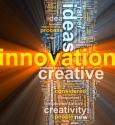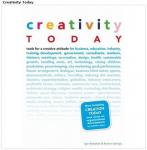Project Update: Life's Principles Game (Kamelia Miteva)
 Can we use game playing as a way to help people learn and apply the Life's Principles? Games can be a powerful means of engaging players to develop new skills, solve problems and collaborate with other players. Jane McGonigal is at the forefront of promoting 'serious games for the public good', such as World Without Oil that encouraged players to explore how a simulated 32-week global oil crisis might unfold and develop their own creative solutions. In the process, players changed their behavior in ways that lasted well after the game was over.
Can we use game playing as a way to help people learn and apply the Life's Principles? Games can be a powerful means of engaging players to develop new skills, solve problems and collaborate with other players. Jane McGonigal is at the forefront of promoting 'serious games for the public good', such as World Without Oil that encouraged players to explore how a simulated 32-week global oil crisis might unfold and develop their own creative solutions. In the process, players changed their behavior in ways that lasted well after the game was over.
Games are big: globally, there are 500 million people who play at least one hour a day. Great games encourage and empower us to change virtual worlds. Research into 'behavioral games' suggests that the same game concepts can enable us to change the real world, by creating a structured environment where we can explore, learn and practice essential skills through play. Interest in the games is maintained over an extended period of time by a powerful narrative combined with feedback loops and challenges matched to their evolving abilities. The newly developed skills can then be generalized to other situations outside of the game.
The project team includes a wide range of skills and expertise. Sherry Ritter brings a wealth of experience about the Life's Principles. Nate Wilson is an avid gamer with a deep understanding of what makes games interesting and enduring. Norbert Hoeller helps keep the project on track, while I bring a background of teaching creativity to children from a biomimicry perspective. We have been exploring how a game based on the Life's Principles could help us make better decisions by being more aware of the implications of current actions and providing tools to develop alternative future actions. Although the goals are pragmatic, the game needs to be fun and exciting, and definitely not 'educational'. I had a chance to try out various games, including creating and evolving organisms in Spore!
Although game-playing has exploded with the widespread availability of computers, we decided to include other channels such as board games and 'in-person' activities that could be incorporated into workshops and other learning situations. The idea is to start simple so that the game can be tested with minimal investment. The game should bring together like-minded people to collaborate on solving the game objectives but also to change the game itself through their ideas and actions. Although many successful games are of short duration, we want a game where players can continue to develop their skills and expertise over an extended period of time.

 In terms of the 'nuts and bolts' of game design, Dignan's Game Frame provides a step-by-step framework for building behavioral games, although it assumes that the underlying game concept has already been determined. The game is also about developing creative solutions: Byttebier's Creativity Today includes a wealth of simple exercises that can help us postpone judgement, make new but flexible associations, exercise our imagination and visual skills, and leverage divergent/convergent thinking.
In terms of the 'nuts and bolts' of game design, Dignan's Game Frame provides a step-by-step framework for building behavioral games, although it assumes that the underlying game concept has already been determined. The game is also about developing creative solutions: Byttebier's Creativity Today includes a wealth of simple exercises that can help us postpone judgement, make new but flexible associations, exercise our imagination and visual skills, and leverage divergent/convergent thinking.
We have explored various ways in which the Life's Principles have been used in workshops and design competitions to encourage an interest in sustainability, develop new ways of framing problems and identify previously unrecognized options or pathways that can lead to innovative solutions. We also looked at a number of game scenarios such as an iterative process of exploring the Life's Principles from an ecosystem perspective and applying them to human challenges, a business model game based on the Zeri beer brewing system, and a 'game within a game' where the game order process involved creating the most sustainable delivery method.
The learning curve about games, game design and the Life's Principles has been steep and we have not yet reached the crest. The next step in the game development framework involves breaking down the various game scenarios into a series of 'skill cycles' or 'game rounds' where players get an opportunity to evaluate the situation, decide on actions, get feedback and then progress to the next level.
If you are interested in helping move this project forward, please contact me or use the Contact Us link at the bottom of the page.
Image Credits:
- Innovation/creative: © Kheng Guan Toh - Fotolia.com
- Spore organism: Kamelia Miteva
- book covers: Amazon.com
Additional Reading:
- Jane McGonigal: Gaming can make a better world
- Game Frame: Using Games as a Strategy for Success (Aaron Dignan)
- Creativity Today (Ramon Vullings, Godelieve Spaas, Igor Byttebier)
Kamelia Miteva is a creativity consultant working with alternative education organizations.
She trained as a biologist, is passionate about biomimicry and teaches biology to children.

